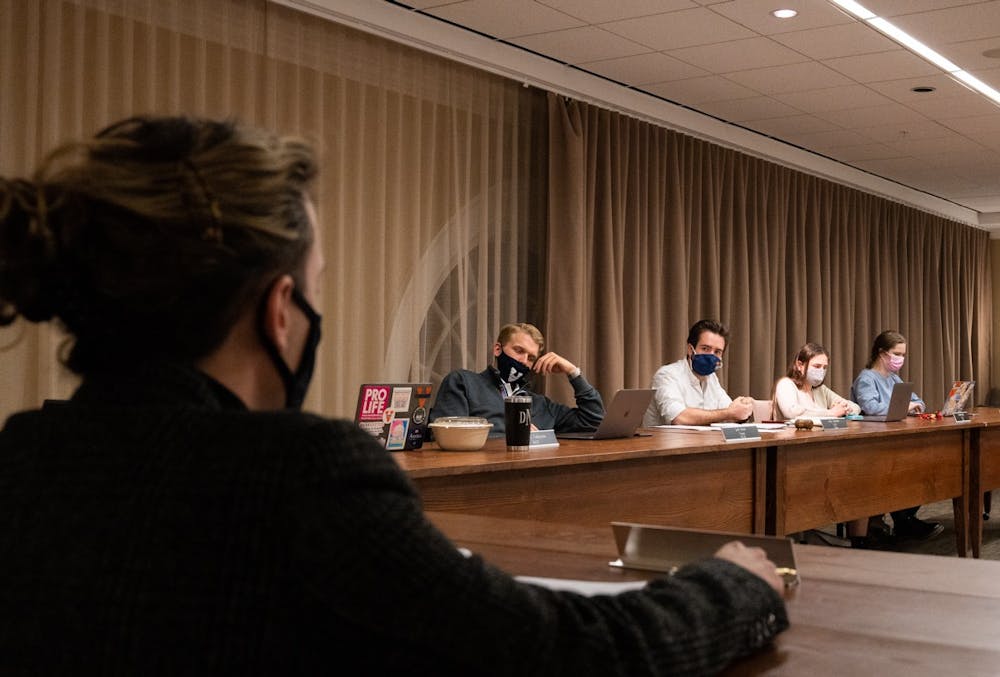One of two Honor referenda aimed at significantly reforming the Honor Committee’s constitution garnered the required 1,250 petition signatures needed to be sent to a full student vote next month. In order to campaign for the referenda, Honor Committee Rep. Christopher Benos, third-year Law student, formed a working group that aims to educate the University community on the proposed change.
Benos authored the referendum, which would reduce the sanction for an Honor violation from expulsion to a two-semester leave of absence if passed. Expulsion has been the sanction for an Honor violation since 1851, when the first recorded Honor trial occurred. The ethics of expulsion have long been debated — some favor a more rehabilitative sanction process, while others uphold expulsion as a just punishment for those who violate the community of trust. Historically, the Honor system has also disproportionately affected students of color and international students.
Members of the Honor Committee have been debating constitutional reform since the fall, when representatives proposed five different constitutional reforms. Benos originally introduced referenda to the Honor Committee, but it failed to pass internally.
In order to appear on the student-wide ballot in March, referenda affecting Honor’s constitution must garner 1,250 signatures or be passed independently by the Committee. As of Sunday, the sanctioning referendum has amassed over 1,650 signatures.
A second referendum authored by Benos would extend the basis of the timeline of the informed retraction from a seven-day period to any time between accusation and trial. As of Sunday, this referendum has garnered 272 signatures.
In order to be put forth to the student body, Benos had to file each with the University Board of Elections and ensure the legality of both individual petitions with the University Counsel, a process that took place in late January. Having garnered enough student petition signatures to appear on the March ballot, approval of the reforms will require 10 percent of the student body — roughly 2,700 students — to vote in favor in the election. Of those 2,700 students, 60 percent must cast votes in favor.
Historically, student turnout for referenda has hovered just above the 10 percent threshold. In 2019, the three referenda put forth garnered 10.51 percent, 10.42 percent and 10.15 percent turnout. Last year, the Committee opted not to submit any referenda, citing historically low turnout rates.
Shortly after making the petitions publicly available, Benos recruited 10 Honor representatives to form an Referenda Working Group in hopes of both gathering the required petition signatures and encouraging approval of the referenda during the student-wide elections in March.
Benos will chair the group, which includes Honor Committee representatives from nine different academic departments. Ceci Cain, vice-president for administration of Student Council and third-year Batten student, also joins the group.
“The group will leverage its strong diversity of perspectives and comply with expectations for an ethical and professional campaign,” Benos said in an email statement to the Cavalier Daily.
The working group will tackle three priorities — strategizing how to advocate for the petitions and spreading information about the proposed reforms, forming partnerships with student organizations, and educating students on ballot initiatives and promoting access to the March ballot.
“[Mobilization] will combine advocacy for broad access to the ballot, cooperation with leaders to maximize turn-out, potential participation in debates and solicitation of student support across various electronic platforms,” Benos said.
So far, the group has garnered endorsements for the proposals from the School of Law Student Bar Association, the Darden Student Association Board and most recently, the Graduate School of Arts and Sciences Council.
The working group is also already preparing bylaw language alterations to propose to the Honor Committee in March. Though this language isn’t finalized, the working group is also investigating how to reform Honor procedures to facilitate efficient and expeditious implementation of the proposed changes.
“The group looks forward to working with community stakeholders to fight for a fairer, more equal, and more compassionate Honor System,” Benos said.
Both of Benos’ proposals are now available for public signature on the UBE's website. Organizations interested in supporting the working group can reach out to Benos at christopherbenos@virginia.edu.







